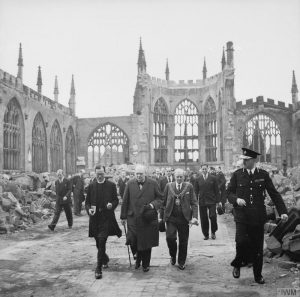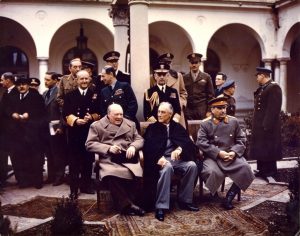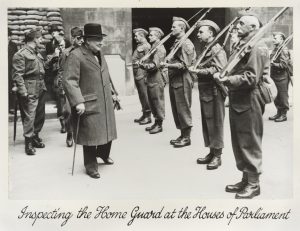
Finest Hour 188
“The Last of the Romans” Herbert Henry Asquith
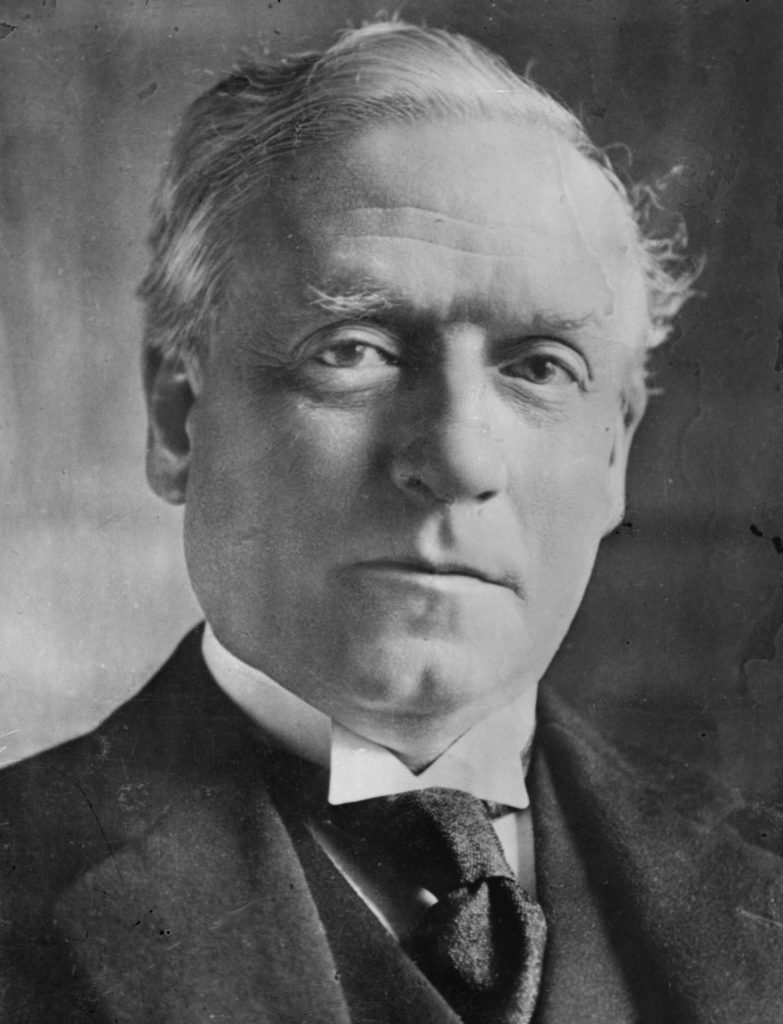
H. H. Asquith
January 2, 2021
Finest Hour 188, Second Quarter 2020
Page 12
By T. G. Otte
T. G. Otte is Professor of Diplomatic History at the University of East Anglia. His next book, Statesman of Europe: A Life of Sir Edward Grey, will be published later this year by Allen Lane.
Next to the monarch who lent his name to the Edwardian era, H. H. Asquith (1852–1928) was its chief representative.1 The period is bathed in the nostalgic afterglow of a late-summer afternoon, but underneath its sedate surface this was a time of searing political and social conflicts. And then there was the war that ended the era, and in which modern Britain began.
It fell to Asquith to deal with these challenges. It was he who promoted Winston Churchill to the Cabinet and under whom Churchill served the longest. Asquith “was a man who knew where he stood on every question of life and affairs in altogether unusual degree….He always gave the impression…of measuring all the changing, baffling situations… according to settled standards and sure convictions.”2
Twenty-two years Churchill’s senior, Asquith belonged to a different generation; his background was different, too, middle-class and meritocratic. At Oxford he won early fame for effortless intellectual brilliance, but he had to work hard to establish himself at the Bar. Elected to Parliament in 1886, his assurance, heightened by his infrequent but well-chosen interventions, marked him out as one of the coming men. As Home Secretary during the brief Liberal interlude between 1892 and 1895 he affirmed his growing reputation; his forensic dissection of the fallacies of Joseph Chamberlain’s tariff reform after 1902 cemented it further. As Chancellor of the Exchequer in the Campbell-Bannerman government, he was central to the inner workings of the administration. His tenure of the Treasury was comparatively short, just under two-and-a-half years, but he was technically more competent than many of his predecessors, and he established important precedents for later chancellors and turned the Treasury into a great policy-initiating department.

2024 International Churchill Conference
Progressive Prime Minister
On succeeding to the premiership in April 1908, Asquith had to accommodate the “radical twins,” David Lloyd George and Churchill. He made Lloyd George Chancellor only reluctantly, but the leader of the Radical wing of the party had “put a pistol to Asquith’s head and asked for the Ch[ancellorship] of the Ex[chequer] with a threat of resignation.”3 His promotion made possible Churchill’s appointment to the Board of Trade. The firebrand Welsh attorney and the renegade Tory aristocrat were an unlikely but effective duo. Strong adherents of “New Liberalism” with its emphasis on state action and social reform, they gave the administration a sharply progressive profile.
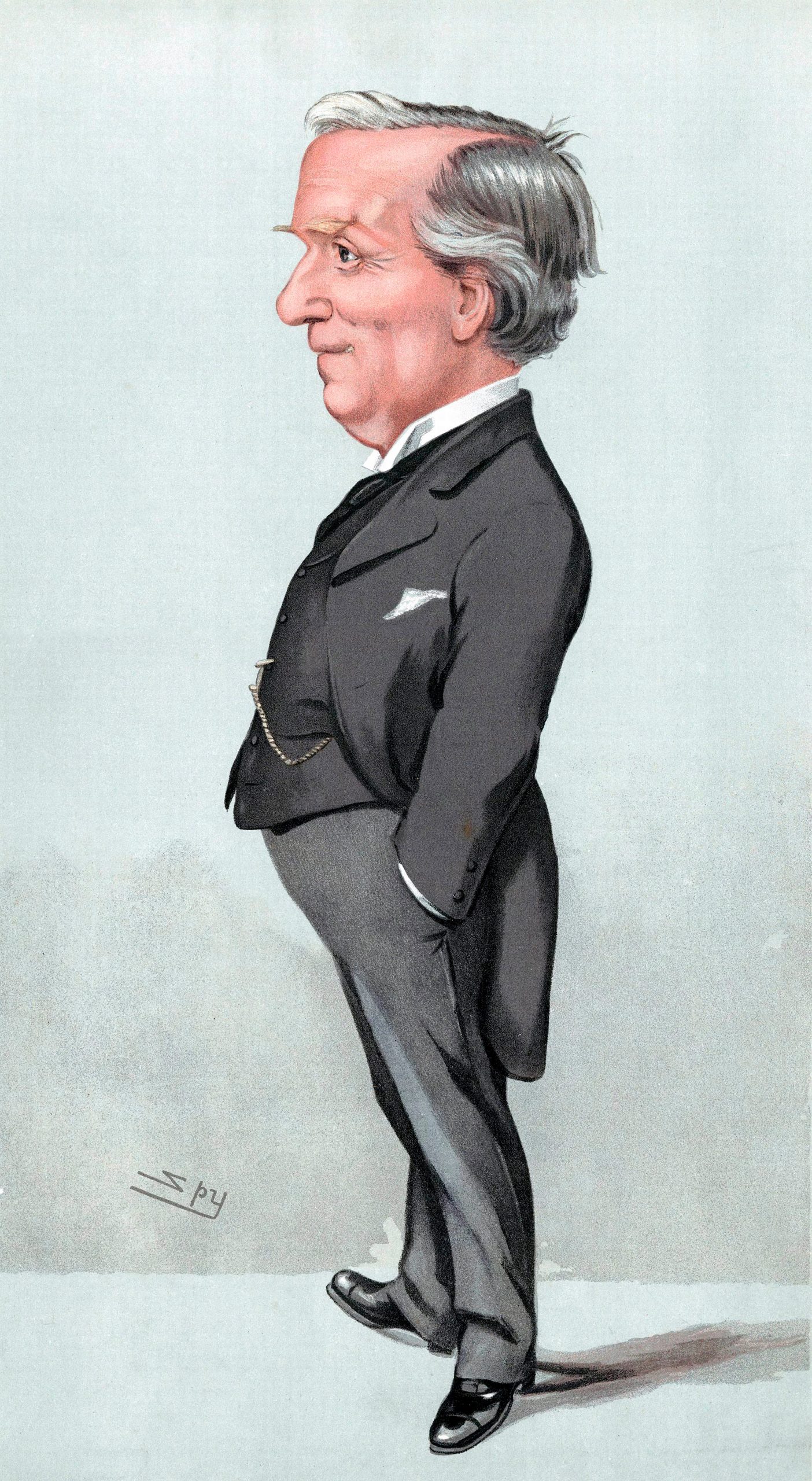
Neither of the “Twins” much respected departmental boundaries, and both made frequent forays into areas outside their own Whitehall bailiwicks. In the summer of 1908, in a coordinated move at a time of Anglo-German tensions, they intervened publicly in favour of “peace and retrenchment.” In a flamboyant speech at Swansea, Churchill ridiculed the idea of war with Germany, much to the fury of King Edward VII, who chastised Asquith for allowing the Twins “ever to make speeches on foreign affairs, concerning which they know nothing.”4 They were swiftly brought to heel, but not for long. Churchill kept pressing for “a tremendous policy in social organization,” which was “urgent & the time is ripe. Germany…is organised not only for war, but for peace. We are organised for nothing except party politics.”5 The prospect of senior ministers resigning ended the row. As Asquith put it in his inimitable style, “a sudden curve suddenly developed itself of which I took immediate advantage,…which satisfied [ministers].”6
The incident was typical of Asquith’s leadership style. He acted as mediator in Cabinet and as coordinator of legislation promoted by ministers. It was the intransigence of the House of Lords over Lloyd George’s “People’s Budget” of 1909 that forced him to lead from the front. Asquith condemned “this new-fangled Caesarism” which converted the upper chamber into “a kind of plebiscitary organ” on the pretence of representing the will of the people “to be protected against their own elected representatives.”7 Two intemperate general elections in 1910 could not break the deadlock, and the Liberals, having lost their majority, were now dependent on Irish Nationalists and the embryonic Labour party.
On being re-elected in the January election, Churchill commented that the government’s situation was “not unfavourable.” The Liberals had to act “with decision and unity at every point. We have had five years of power, & our attitude should be that while willing & able to go on & carry out our large plans, we will only do so on our own terms.”8 Asquith was dispirited, and only regained his composure as the parliamentary struggle resumed. A constitutional conference of the party leaders collapsed in the summer, but Asquith had secured a secret guarantee from the new King, George V, that new peers would be created if the stand-off persisted. He turned the December general election into a struggle of “Peers versus People,” but it too brought no resolution, and partisan strife continued unabated. When in July 1911 the Parliament Bill made its way through the Commons, Asquith was howled down in what Churchill called “a squalid, frigid organised attempt to insult the Prime Minister & prevent debate.”9 The bill eventually passed, but in keeping with Whig tradition, Asquith sought to reshape rather than overhaul existing arrangements, enabling him to achieve a radical purpose within a conservative framework. Allowing the Lords to retain significant powers, however, also bequeathed to future generations the still-unsolved riddle of what to do with the upper chamber.
At the same time, Europe stared into the abyss of war once again, as another FrancoGerman stand-off over Morocco swiftly escalated. Churchill, since February 1910 Home Secretary, had sloughed off some of his earlier Radicalism. In the sweltering heat of July his “highmetalled spirit was exhilarated by the air of crisis,” as Sir Edward Grey later recalled. Most days, the two went for a swim at the Automobile Club late in the afternoon, the immersion reviving Grey’s spirits and “cooling… [Churchill’s] ardour.”10 Churchill increasingly turned towards military matters and touted a wild-goose scheme for a triple alliance with France and Russia for the defence of the Low Countries and Denmark, based on close military cooperation.11 The most significant consequence of these internal debates, however, was institutional. Asquith set out to reorganize the Admiralty, which involved moving Churchill thither—a risky manoeuvre given his earlier support for retrenchment.12
Asquith was now at the zenith of his power, but it had taken a physical toll. The government was also under siege. Trade union disputes had acquired greater significance, and Asquith’s lawyerly circumspection often jarred with labour leaders. He was slow to reverse anti-union judgments, and he could not prevent the railway strike in August 1911. Then the miners struck in the spring of 1912, followed by London’s dockers in the summer. The government’s authority was further tarnished by the Marconi shares scandal, which implicated Lloyd George, and by its dithering over female suffrage. The planned disestablishment of the Church in Wales was deadlocked, and Home Rule legislation was equally unfinished business. With Unionist leaders ready to play the “Orange card,” Ireland appeared to be on the brink of civil war; and when, in March 1914, senior officers refused to obey orders to disarm Unionist volunteers (the so-called “Curragh Mutiny”), the government’s lack of authority was laid bare.
Storm Clouds
At the Admiralty, meanwhile, Churchill completed his conversion to a “big navy” man. The steady increase in German naval construction reignited Cabinet rows over naval expenditure.13 Churchill also kicked off a lively debate over redeploying the Mediterranean squadron, and Asquith eventually instructed the Committee on Imperial Defence to examine British strategy, and “the degree of reliance to be placed on the cooperation of the French fleet.”14 At the Foreign Office it was feared (rightly, as it turned out) that a diminished naval presence would reduce political influence in the region, tip the balance at Constantinople in Germany’s favour, and make war between Turkey and the smaller Balkan nations more likely.15 Undeterred, Churchill pressed for “[a]n Anglo-French alliance [which] w[oul]d be able to maintain full control of the Mediter[ranea]n, & afford all necessary protection to British & French interests both territorial & commercial, without impairing British margins in the North Sea.”16 Ultimately, a compromise was adopted that allowed for redistribution but left the Navy “free to operate in the Mediterranean as required.”17 There were likely to be complications, Grey observed: “The smaller our naval power, the more difficult our foreign policy.”18 The essential correctness of this analysis was borne out by France’s persistent pressing for clarifying the nature of Anglo-French defence relations, which led to the AngloFrench exchange of notes in November 1912.
Churchill continued to stray beyond narrow departmental remits. In late 1911, in response to the Italo-Turkish War, he suggested realigning British policy: “[W]e must not forget that we are the greatest Mahomedan power in the world.” Turkey, if allied with Germany, was the greatest land weapon against Britain: “Have we not more to gain from Turkish friendship than from Italian?”19 Churchill had overestimated Turkish military power. The war spread to the Eastern Mediterranean, eventually engulfing the whole of the Balkan peninsula, and by the end of 1912 Turkey was no longer a European power: Churchill’s formidable Oriental sabre stood revealed as a blunt dagger.
Elsewhere the international situation was becoming more favourable. Unable to compete with Britain at sea and France and a now-resurgent Russia on land, Germany was running out of money. But other Powers were embarking on their own dreadnought programmes, making it difficult to maintain Britain’s naval position. Against this backdrop Churchill suggested a “naval holiday,” possibly as the nucleus of a general arms limitation agreement. Britain, he warned, might “yet be left to face a great preponderance of loose Dreadnoughts, wh[ich] at v[ery] short notice, a diplomatic grouping or regrouping may range against us.”20 Britain could not afford to slacken her efforts, and ministers once more clashed over naval expenditure. The row followed the usual pattern, Asquith keeping in the background, leaving it to Grey to thrash out a compromise, which gave Churchill the requested funds.21
Churchill did not have it all his own way, for Asquith and Grey killed off his idea of direct talks with the Kaiser on the fringes of the annual Kiel regatta.22 Entrusting such a matter to characters as mercurial as Churchill and the “Winston of Germany,” both apt to be carried away by their exuberant verbosity, was simply too fraught with risk.23
When the lights went out all over Europe, ministers were preoccupied with the affairs of Ulster. Grey sought to mediate between the Powers, but—to underline Britain’s resolve—he agreed to Churchill’s idea not to disperse the fleet then at Spithead for the naval review.24 Yet Churchill warned that war would be a “calamity for civilised nations,” and suggested that Europe’s monarchs meet for a crisis summit. Asquith thought this impracticable: “The Austrian Emperor is bitter…& we hear that the Czar is violent & they are far apart—no help can be looked for in this direction.”25
As the continental powers mobilised, Churchill’s views hardened. On 31 July, he “once or twice became bellicose and aggressive” in Cabinet.26 On the following day, he was alone in advocating intervention, and colleagues thought him “very bellicose” and “very violent,” with a tendency to dominate proceedings.27 As the debate raged back and forth, Lloyd George slipped him a note: “if patience prevails and you do not press us too hard we might come together.”28 Ministers rejected Churchill’s plan for mobilizing the Navy, but afterwards he won Asquith’s tacit consent for it. The Prime Minister, he later wrote, looked at him “with a hard stare and gave a sort of grunt. I did not require anything else.”29
The Great War
Asquith kept government and party together in July 1914. Once Britain had entered the war, however, the party and the wiring of the British state came under increasing strain, and Asquith was no war leader. He made Lord Kitchener war minister, but this did not lend greater direction to the war effort. Nor did the new Defence Committee make for purposeful decision-making, since it—and after November 1914 the War Council, which replaced it—operated alongside the Cabinet and other wartime bodies without any clear coordinating mechanism.
Few could deny the energy with which Churchill met the challenges of war; but to many his judgment was too often flawed. In the Middle East matters steadily deteriorated as the Ottomans drifted into Germany’s orbit, and when they attacked Russia’s Black Sea coast on 29 October, Churchill demanded that Britain join the fray. “You want a new war with someone once a week,” Grey quipped during the Cabinet meeting on 30 October.30 There was no alternative, however, and by 5 November Britain was at war with Turkey.
The stage was thus set for the Dardanelles campaign. Brilliant in its conception, the assault on the enemy’s soft underbelly was under-equipped and woefully executed. Yet Churchill contributed to its failure, and thus his own downfall in May 1915. Stung by the escape of two German cruisers and their subsequent transfer to Ottoman command at the beginning of the war, he seized on a Greek proposal for an assault on the Straits. Nothing came of it, but Churchill ordered the bombardment of the Dardanelles on 3 November. It is doubtful that the move alerted the Turkish authorities to the vulnerability of the Gallipoli forts.31 Two facts, however, cannot be denied: Churchill launched a private war against Turkey two days before Britain’s formal declaration of war; and the Turks now strengthened the Dardanelles defences.
Churchill also made enemies at home: “Winston just now is absolutely maddening….He is devoured by vanity,” complained Adm. “Jackie” Fisher, briefly re-installed as First Sea Lord.32 There were other complications. Fleet Street press barons whipped up a “shell scandal,” and both Asquith and Andrew Bonar Law, the Unionist leader, came under pressure from their own supporters. Tory backbenchers chafed at their party’s muted criticism of the government, while Liberals shied at the prospect of military conscription. Asquith struggled to bring “the most contentious points…to the sober level of business & common sense.”33 In May 1915, the campaign against the alleged shell shortage reached its crescendo, and Fisher resigned from the Admiralty. There was only one way out of the stalemate—a coalition between the two main parties. To satisfy Tory prejudices, Asquith sacrificed Churchill and thus survived as Prime Minister. But the new arrangements were never more than a stopgap, and Asquith barely concealed his contempt for his new colleagues—“Balfour, Curzon and possibly Bonar Law were the only ones with brains.”34
Tribune
Asquith’s premiership collapsed when the military situation deteriorated again; nor could he match Lloyd George’s unbounded ambition for the highest office. He might have survived, had he resorted to secret sessions of the Commons, Churchill later reflected—as he himself would do in the next war.35 Asquith did not, however, and in December 1916 had to make way for the more energetic Welshman.
Asquith was “the last of the Romans.” There was something senatorial—in a Ciceronian sense—about his character and demeanour. He disliked self-advertising and had a high sense of public duty; his rhetoric had a classical elegance and was powered by remorseless logic; his judgment of men and things was shrewd, and he was always on top of his brief. He showed iron resolve and ruthless determination, all of which stood him in good stead in peacetime.
He presided over a great reforming administration, but his moderation and respect for institutions ensured that change did not overwhelm the British state. Excellent qualities in times of peace, in war they appeared to suggest dithering. Both in his strengths and in his failings, he set an example for Churchill.
Endnotes
1. Asquith was known as Henry to friends and family, but—like any Edwardian gentleman—in public hid behind his initials and so was known as H. H. Asquith.
2. Winston S. Churchill, Great Contemporaries (London: Collins Fontana, 1959), p. 111.
3. Viscount Esher diary, 10 Apr. 1908, Churchill Archives Centre, Cambridge, ESHR 2/11/108 [original emphasis].
4. Edward VII to Hardinge, 25 Aug. 1908, Hardinge MSS, Cambridge University Library, vol. 14; Churchill speech at Swansea, 15 and 17 Aug. 1908, The Times.
5. Churchill to Asquith, 29 Dec. 1908, Asquith MSS, Bodleian Library, Oxford, Ms. Asquith 11; memo. Churchill, “A Note on Naval Estimates, 1909–10,” 2 Feb. 1909, The National Archives (TNA), CAB 37/97/19.
6. Asquith to Margot Asquith, 16 Feb. 1909, Margot Asquith MSS, Bodleian Library, Oxford, Ms.Eng.c.6690.
7. Hansard Parliamentary Debates, 5th ser., vol. xiii (2 Dec. 1909), col. 556.
8. Churchill to Grey (private), 23 Jan. 1910, Grey MSS, TNA, FO 800/89.
9. Harold Nicolson, King George V (London, 1952), p. 153.
10. Viscount Grey of Fallodon, Twenty-Five Years, vol. 1 (New York: Stokes, 1925), p. 230.
11. Churchill to Grey (secret), 30 Aug. 1911, Lloyd George MSS, Parliamentary Archives, House of Lords, C/3/15/7.
12. Haldane, who had hopes for the Admiralty himself, was dismissive of Churchill’s merits: “full of energy and imagination as he is, he does not know his problem or the vast field of
thought that has to be covered. He is too apt to act first and think afterwards,” Haldane to Grey, 2 Oct. 1911, Haldane MSS, National Library of Scotland, MS 5909.
13. Memo. Churchill, n.d. [14 Feb. 1912], CAB 37/109/21.
14. Hankey to Grey, 30 Apr. 1912, in G. P. Gooch and H. W. V. Temperley, eds., British Documents on the Origins of the War, 1898– 1914, vol. X, part 2 (London, 1938), no. 381.
15. Memo. Crowe, “Effects of a British Evacuation of the Mediterranean on Questions of Foreign Policy,” 8 May 1912, TNA, FO 371/1560/19598; also Asquith to King George V, 11 May 1912, Asquith MSS, MS. Asquith 6.
16. Memo. Churchill (secret), 15 June 1912, TNA, ADM 116/3110.
17. Minutes of 117th CID meeting, 4 July 1912, CAB 2/2/3.
18. Minutes of 118th CID meeting, 18 July 1912, ibid.
19. Churchill to Grey (private), 4 Nov. 1911, Grey MSS, FO 800/86.
20. Churchill to Grey (personal and secret), 24 Oct. 1913, BD x/2, no. 487; memo. Churchill, “Naval Estimates, 1914–15” and “Naval Estimates: Notes on various suggestions for reduction,” 5 and 13 Dec. 1913, CAB 37/117/86 and 93.
21. Memo. Churchill, “Naval Requirements, 1914–15,” 6 Feb. 1914, CAB 37/119/25; memo. Lloyd George, ? Feb. 1914, Asquith Mss, Ms. Asquith 25.
22. Churchill to Grey (secret), 8 May 1914, and memo. Churchill (for Asquith and Grey), 20 May 1914, Grey MSS, FO 800/88.
23. William Tyrrell, Grey’s private secretary, summed up the Kaiser as “a man of words—a truly modern Emperor; in fact, the Winston of Germany,” Tyrrell to Spring Rice, 15 Apr. 1908, Spring Rice MSS, TNA, FO 800/241.
24. Winston S. Churchill, The World Crisis, vol. 1, 1911–14 (London: Butterworth, 1923), pp. 198–99.
25. Pease diary, 29 July 1914, K. M. Wilson, “The Cabinet Diary of J. A. Pease, 24 July–5 August 1914,” Proceedings of the Leeds Philosophical and Literary Society. Literary and Historical Section, xix, 3 (1983), pp. 43–45.
26. Ibid., 31 July 1914, p. 45.
27. M. and E. Brock, eds., Asquith: Letters to Venetia Stanley (Oxford: Oxford University Press, 1985), p. 140; and Harcourt cabinet notes, 1 Aug. 1914, Harcourt MSS, Bodleian Library, Oxford, no shelfmark.
28. Lloyd George to Churchill, 1 Aug. 1914, Lloyd George MSS, C/14.
29. Churchill, Great Contemporaries, p. 122.
30. Harcourt Cabinet notes, 30 Oct. 1914, Harcourt MSS, no shelfmark.
31. The official indictment of Churchill, see Report of the Dardanelles Commission (1916), part 1, CAB 19/1.
32. M. and E. Brock, eds., Margot Asquith’s Great War Diary, 1914– 1916: The View from Downing Street (Oxford: Oxford University Press, 2014), p. 79.
33. Brock, Asquith: Letters, p. 543.
34. Hankey diary, 21 May 1915, Hankey MSS, CCAC, HNKY 1/1.
35. Churchill, Great Contemporaries, p. 124.
Subscribe
WANT MORE?
Get the Churchill Bulletin delivered to your inbox once a month.
